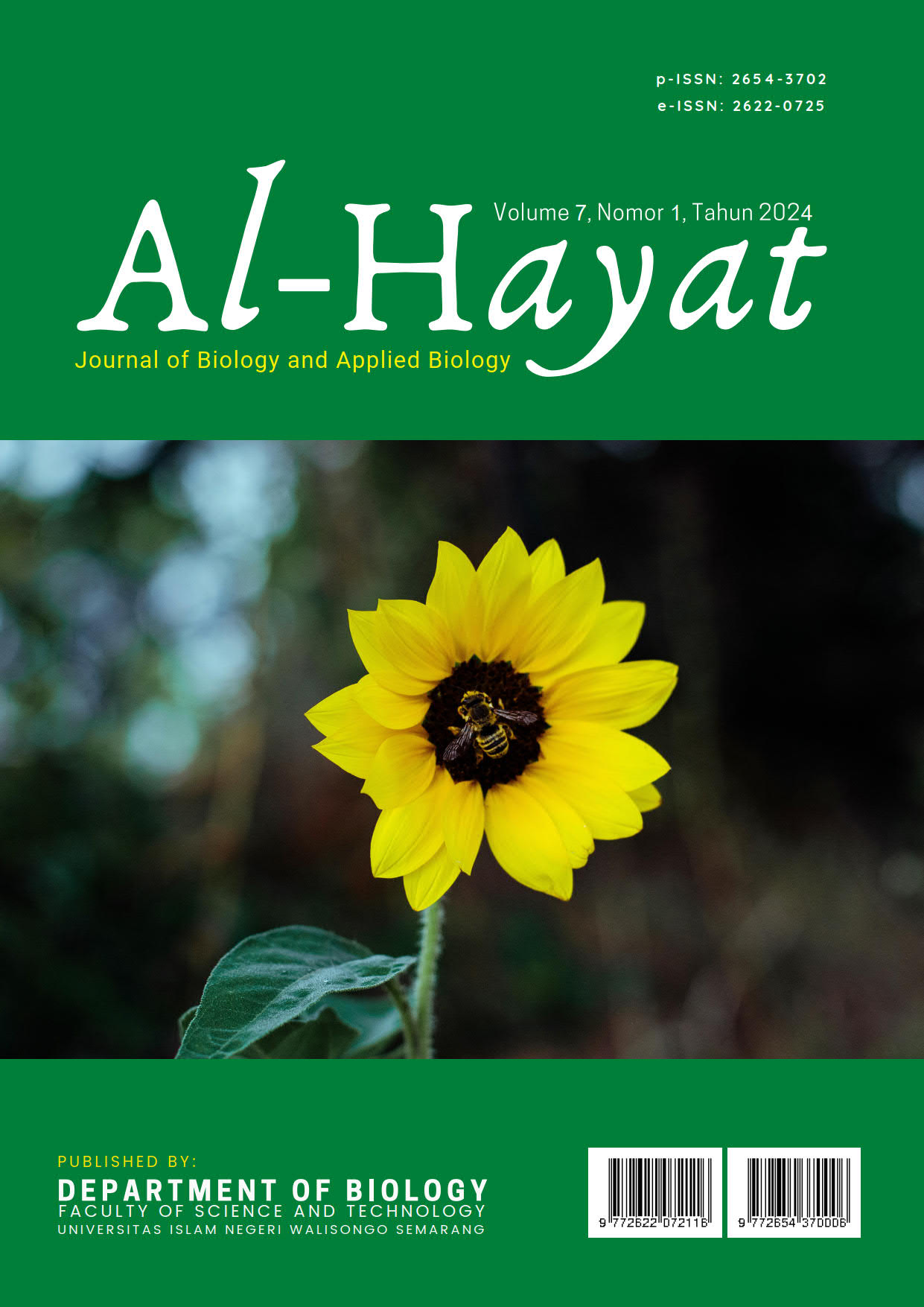Dimensional Stability Test of Mahogany Wood by Heat Treatment
Main Article Content
Abstract
Mahogany wood (Swietenia macrophylla) is one of Indonesia's fast-growing commercial tree species. Its wood is widely used for construction because of its great potential in the timber industry. Mahogany wood has low dimensional stability and high hygroscopic properties. This study aims to improve the quality of mahogany wood in terms of dimensional stability with the heat treatment method. Samples of mahogany wood were heat treated with three-time levels, namely control, 3 hours, and 6 hours at 180 °C. The results showed that heat treatment at 180 °C for 6 hours had the best results for maintaining wood dimensions gacorqq with a low increase in water content, increased specific gravity, low absorption ability, minor swelling of wood in three directions of wood, and the value of ASE is also common than 3 hours of treatment.
Downloads
Article Details

This work is licensed under a Creative Commons Attribution-ShareAlike 4.0 International License.
The copyright of the received article shall be assigned to the journal as the publisher of the journal. The intended copyright includes the right to publish the article in various forms (including reprints). The journal maintains the publishing rights to the published articles. Authors are allowed to use their articles for any legal purposes deemed necessary without written permission from the journal with an acknowledgment of initial publication to this journal.
The work under license Creative Commons Attribution-ShareAlike 4.0 International License.
References
Akgül, M., Gümüşkaya, E., & Korkut, S. (2007). Crystalline Structure of Heat-treated Scots pine [Pinus sylvestris L.] and Uludaǧ fir [Abies nordmanniana (Stev.) subsp. bornmuelleriana (Mattf.)] Wood. Wood Science and Technology, 41(3), 281–289. https://doi.org/10.1007/s00226-006-0110-9
Badan Penelitian dan Pengembangan Kehutanan. (2005). Atlas Kayu Indonesia Jilid I. Pusat Penelitian dan Pengembangan Hasil Hutan.
Bekhta, P., & Niemz, P. (2003). Effect of High Temperature on the Change in Color, Dimensional Stability and Mechanical Properties of Spruce Wood. Holzforschung, 57(5), 539–546.
Boonstra, M. (2008). A Two-stage Thermal Modification of Wood [Dissertation]. Gent University.
Burnard, M., Posavčević, M., & Kegel, E. (2017). Examining The Evolution and Convergence of Wood Modification and Environmental Impact Assessment In Research. IForest, 10(6), 879–885. https://doi.org/10.3832/ifor2390-010
Esteves, B., Videira, R., & Pereira, H. (2011). Chemistry and Ecotoxicity of Heat-treated Pine Wood Extractives. Wood Science and Technology, 45(4), 661–676. https://doi.org/10.1007/s00226-010-0356-0
Fendi, Kurniaty, D., & Darmawan, S. (2017). Derajat Kristalinitas dan Struktur Anatomi Kayu Jati Muna Akibat Perlakuan Panas. Jurnal Ilmu Pertanian Indonesia (JIPI), 22(1), 20–24. https://doi.org/10.18343/jipi.22.1.20
Haygreen, J., Shmulsky, R., & Bowyer, J. (2003). Forest Product and Wood Science, An Introduction. The Lowa State University Press.
Hill, C. (2006). Wood Modification: Chemical, Thermal, and Other Process. John Wiley and Sons Ltd.
Hill, C. A. S. (2011). Wood Modification: An Update. BioResources, 6(2), 918–919.
Joma, E., Schmidt, G., Cremonez, V. G., Venson, I., & Simetti, R. (2016). The Effect of Heat Treatment on Wood-water Relationship and Mechanical Properties of Commercial Uruguayan Plantation Timber Eucalyptus grandis. Australian Journal of Basic and Applied Sciences, 10(1), 704–708. www.ajbasweb.com
Karlinasari, L., Yoresta, F. S., & Priadi, T. (2018). Karakteristik Perubahan Warna dan Kekerasan Kayu Termodifikasi Panas pada Berbagai Suhu dan Jenis Kayu. Jurnal Ilmu Teknologi Kayu Tropis, 16(1), 68–82.
Kocaefe, D., Huang, X., & Kocaefe, Y. (2015). Dimensional Stabilization of Wood. Current Forestry Reports, 1(3), 151–161. https://doi.org/10.1007/s40725-015-0017-5
Korkut, D. S., Korkut, S., Bekar, I., Budakçi, M., Dilik, T., & Çakliclier, N. (2008). The Effects of Heat Treatment on The Physical Properties and Surface Roughness of Turkish Hazel (Corylus colurna l.) Wood. International Journal of Molecular Sciences, 9(9), 1772–1783. https://doi.org/10.3390/ijms9091772
Kubler, H. (1980). Wood as Building and Hobby Material. John Willey & Sons Inc.
Kuzman, M. K., Kutnar, A., Ayrilmis, N., & Kariz, M. (2015). Effect of Heat Treatment on Mechanical Properties of Selected Wood Joints. European Journal of Wood and Wood Products, 73(5), 689–691. https://doi.org/10.1007/s00107-015-0931-z
Lukmandaru, G., Susanti, D., & Widyorini, R. (2018). Sifat Kimia Kayu Mahoni yang Dimodifikasi Dengan Perlakuan Panas. Jurnal Penelitian Kehutanan Wallacea, 7(1), 37–46. https://doi.org/10.18330/jwallacea.2018.vol7iss1pp37-46
Masdar, A. (2018). Perbandingan Kekuatan Tekan Sejajar Serat Terhadap Kekuatan Tegak Lurus Serat Pada Kayu Mahoni. Jurnal Ilmiah Telsinas, 1(2), 8–11.
Missio, A. L., De Cademartori, P. H. G., Mattos, B. D., Santini, E. J., Haselein, C. R., & Gatto, D. A. (2016). Physical and Mechanical Properties of Fast-Growing Wood Subjected to Freeze-Heat Treatments. BioResources, 11(4), 10378–10390.
Panshin, A., & Zeeuw, C. de. (1980). Textbook of Wood Technology: Structure, Identification, Properties, and Uses of The Commercial Woods of The United States Canada. McGraw-Hill Book Company.
Priadi, T., & Hiziroglu, S. (2013). Characterization of Heat Treated Wood Species. Materials and Design, 49, 575–582. https://doi.org/10.1016/j.matdes.2012.12.067
Sandberg, D., Kutnar, A., & Mantanis, G. (2017). Wood Modification
Technologies - A review. IForest, 10(6), 895–908. https://doi.org/10.3832/ifor2380-010
Sushardi, Prayitno, T. A., Suranto, Y., & Lukmandaru, G. (2021). Distribution of Certified Wood Teak Wood Machining Properties as Export Furniture Materials. Jurnal Hutan Tropika, 16(1), 15–25. https://e-journal.upr.ac.id/index.php/JHT
Uribe, B. E. B., & Ayala, O. A. (2015). Characterization of Three Wood Species (Oak, Teak and Chanul) Before and After Heat Treatment. Journal of the Indian Academy of Wood Science, 12(1), 54–62. https://doi.org/10.1007/s13196-015-0144-4
Wahyudi, I., Priadi, T., & Rahayu, I. S. (2014). Karakteristik dan Sifat-Sifat Dasar Kayu Jati Unggul Umur 4 dan 5 Tahun Asal Jawa Barat. Jurnal Ilmu Pertanian Indonesia (JIPI), 19(1), 56.
Widyorini, R., Khotimah, K., & Prayitno, T. A. (2014). Pengaruh Suhu dan Metode Perlakuan Panas Trehadap Sifat Fisika dan Kualitas Finishing Kayu Mahoni. Jurnal Ilmu Kehutanan, 8(2), 65–74.
Zhou, F., Fu, Z., Gao, X., & Zhou, Y. (2020). Changes in The Wood-water Interactions of Mahogany Wood Due to Heat Treatment. Holzforschung, 74(9), 853–863. https://doi.org/10.1515/hf-2019-0192

